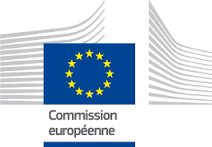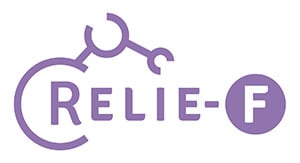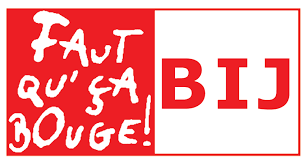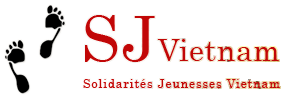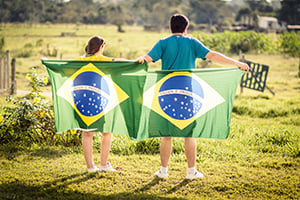Even if we are convinced that volunteers’ goodwill and motivation are relevant and useful qualities to join a project, it is important to point out that these are not sufficient. Volunteering is a rewarding individual and collective experience, however, it can only be done by leaving behind your familiar landmarks, your friends and family and by taking the chance of opening yourself to the unknown. Volunteering abroad also means coping with unexpected and difficult situations before you leave, during your project and when you come back. Thus, it is important to benefit from support in your project and from an appropriate training organised by our members and coordinators.
In order to carry out your project, we will support you the best we can along with former volunteers’ assistance. However, as this is your experience, we will ask you to be proactive, mature and autonomous.
Usually, volunteers who come back before their project ends are often people who have not prepared themselves properly and who deluded themselves about their projects, the receiving organisation and the host country. Once these people join the project, they feel disappointed and come home before it comes to its end. Therefore, it is really important to take note of the realities of the project, the host country and its culture in order to avoid idealizing an experience you would find disappointing compared to your expectations.
We think that international volunteering, supporting young people and additional activities (such as training weekends) are essential awareness-raising tools which enable us to achieve our objectives as an organisation. We believe that international volunteering is an amazing medium for non-formal education. Volunteering projects enable the volunteers to adapt to another culture, another language or to develop some skills such as communication skills, team work or empathy. Thereafter, all the skills volunteers developed through volunteer work can help them begin their future professional life. Volunteering within this framework is actually an educational process encompassing collective preparation, a deeper understanding of the project as well as a final assessment in order to enable the youths to develop together useful skills. Here are some skills volunteers can develop within the framework of a well conducted volunteering project:
- Developing a greater open-mindedness
- Establishing trust and egalitarian relationships that respect differences
- Coping with responsibilities
- Learning how to manage an associative project
- Getting to know themselves through their relationships with others
- Discovering different cultures
- Practising foreign languages
- Learning how to manage situations on their own in an unfamiliar context
- Adapting to a particular work organisation.
Even if you are driven by diverse and generous motivations, you should not volunteer on a misunderstanding or on an impulse. We advise you to take some time to think about what you are looking for in a project. You need to have realistic and well documented motivations by researching some information about the countries, the organisations and the projects. For all these reasons, we are here to help you make the right choice about your project according to your motivations and expectations.
The preparation we provide to each volunteer focuses on the associative project they wish to join but also on the intercultural encounter, on collective activities and on multicultural group dynamics. Every month, we endeavour to organise at least one training weekend intended for our future volunteers. These training sessions address these topics in a friendly, funny and concrete way to better prepare the volunteers before they leave. These training weekends are an opportunity for the volunteers to clarify and to talk about their worries and expectations concerning a project.
Each of the youth who is going to volunteer for a short or a long period can also meet one of our coordinators during these weekends.
For the volunteers who are going to join a project for a long period, we also organise a teleconference with members of their future receiving organisation to make sure they are getting along well. During this conference, you will have the opportunity to ask precise questions about the project again and to make sure you will feel relaxed when you leave.
In addition to these individual encounters and collective preparations, we think that it is important to create some meeting and discussion places in which some former volunteers may have the opportunity to share their experiences with future volunteers. Every month, we try our best to bring the volunteers who are about to leave and those who already came home together. We believe that this kind of exchange is a very rewarding opportunity for future volunteers. Thus, they can have a specific idea of the project they are about to join. Besides, it is also an opportunity for former volunteers to share their own experiences.
Once the receiving organisation confirmed you can join its project, do not hesitate to ask for a list of former volunteers who live in your region in order to contact them and to learn from their experience. You can also ask for feedback written by former volunteers in order to read them and to get an assessment of our projects.
On a fourth basis, we try to invite a foreign partner organisation to come and introduce its local projects. During these meetings, which generally take place in the afternoon, volunteers can have the opportunity to ask questions and to be provided directly with all information they need concerning their projects.
We occasionally organise open events and conferences dealing with interculturality, journeys, religion, international relations or international solidarity.
We have drawn up a preparation guide book for the volunteers who are about to leave as well as a guide book about religions and multiculturality. These regularly-updated guide books are available for the volunteers before they leave in order to prepare them to the experience and to the culture shock they will live very soon. However, these guides are available to provide you with basic information: it is up to you to dig deeper!
Moreover, volunteers are also provided with a file introducing the host country in which videos and audio reports are included in order to get them accustomed to its geography, history, traditions and culture. These files also include practical tips specific to each country.
Once your enrollment is complete, you will be given an access to our virtual library which contains more than 2000 travel documents: travel guides, videos, safety tips, former volunteers’ interviews, information about visas and so on. Even if you can use all these documents, it is not compulsory to read them. Nevertheless, we advise you to have a look at the documents that could potentially interest you.
Once our volunteers left, we do keep in touch with them. We can act as a mediator between the volunteers and their receiving organisations to help them find a solution if necessary. We will get in touch with the volunteers who are going to join a project for a long period few weeks after they left in order to make a mid-term assessment of their project. This assessment will enable us to estimate the quality of the work camp according to your point of view and to share your experience with future volunteers.
At the end of your volunteering period, we will ask you to fill a final evaluation form which will enable us to know more about your volunteering experience. Throughout the whole duration of your project, do not hesitate to get in touch with your coordinator whether it is to send him/her some pictures of the activities, to share some stories that will supplement the feedback we received or to report a problem.


